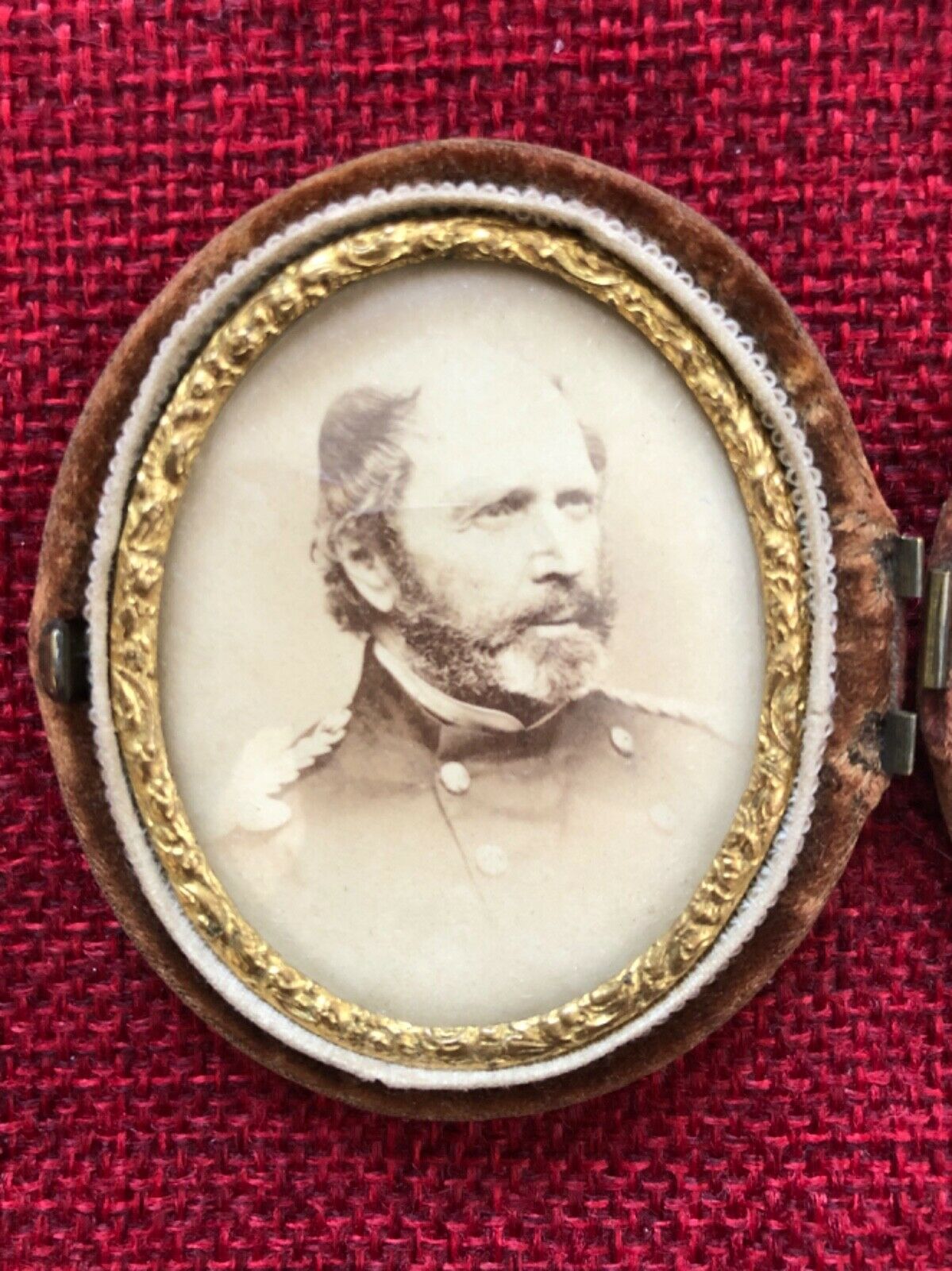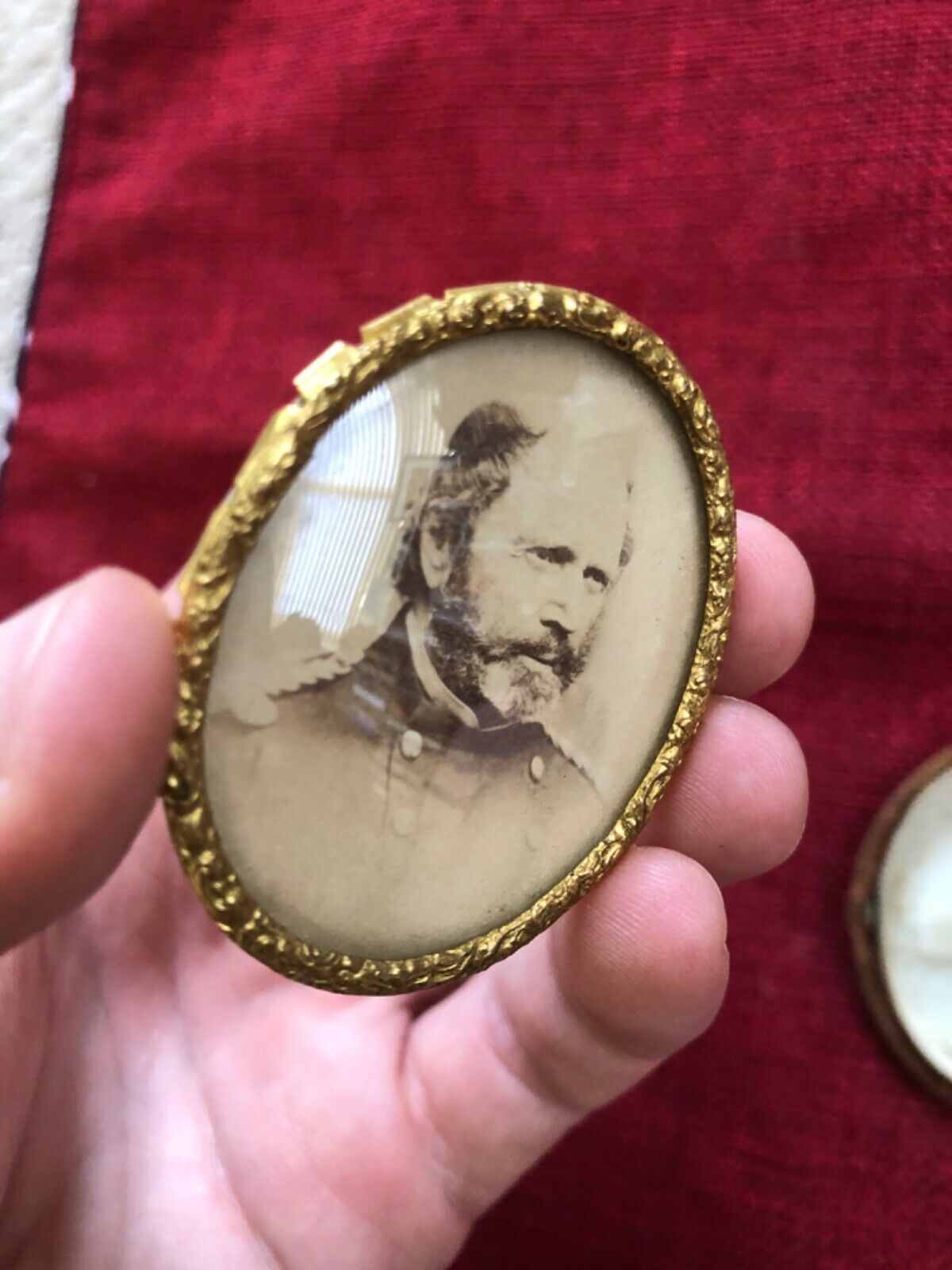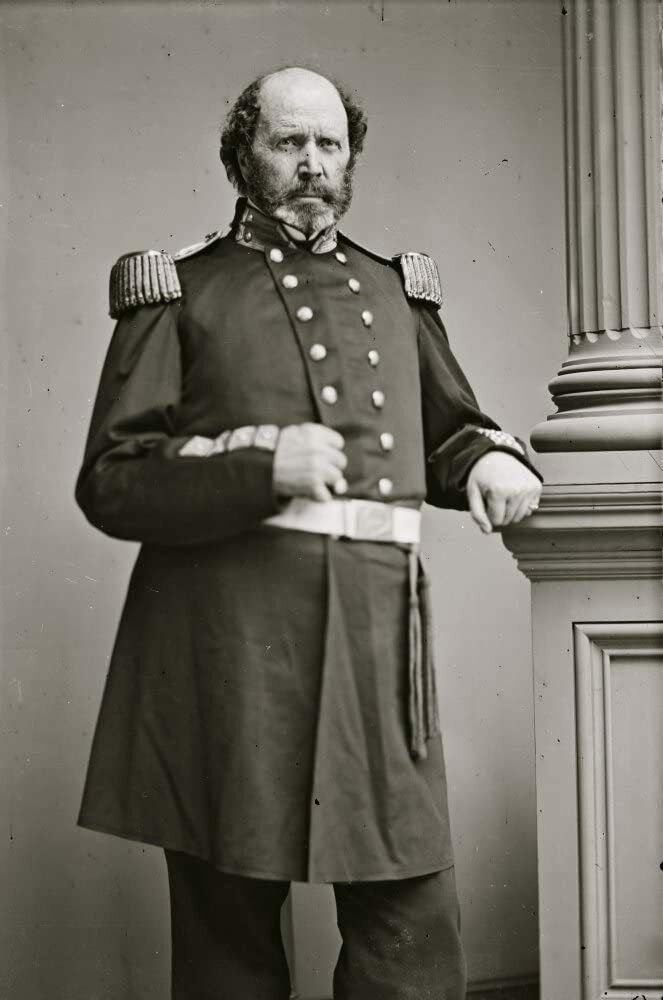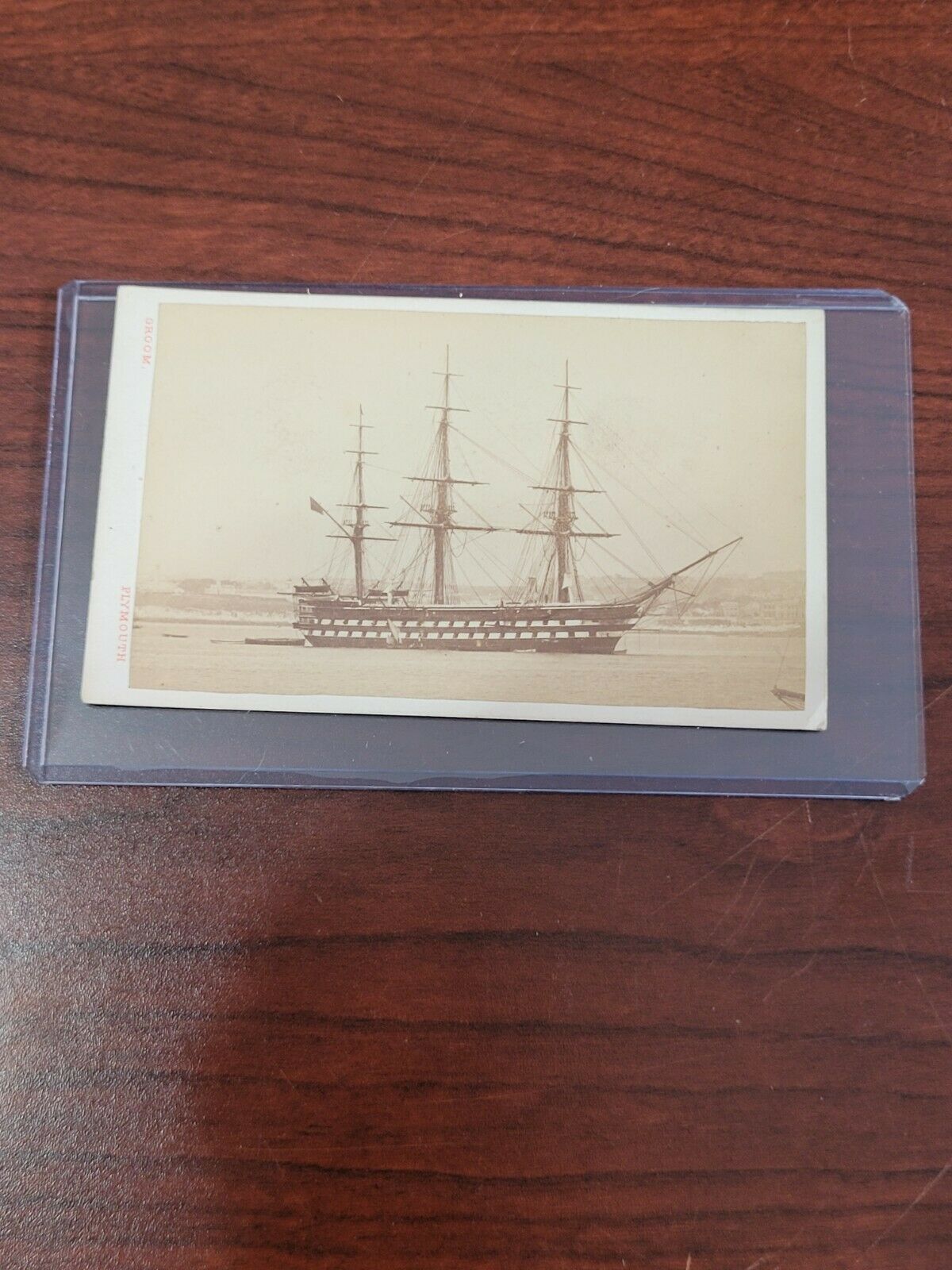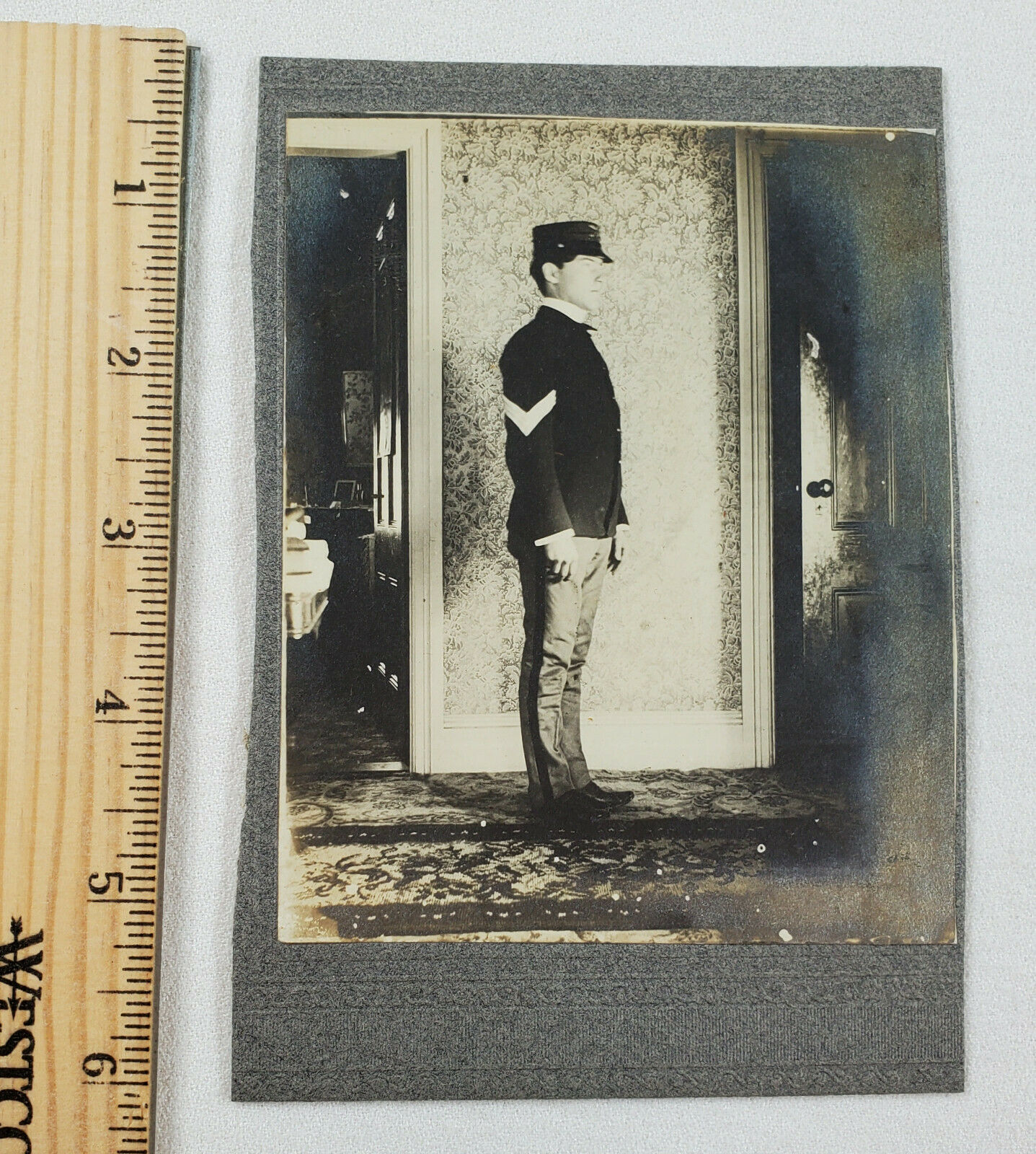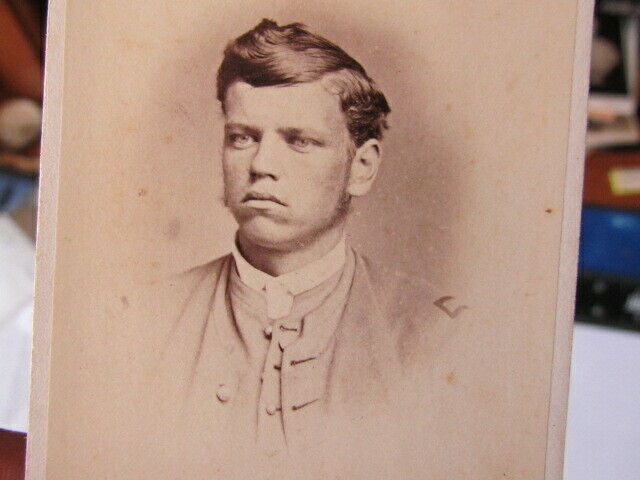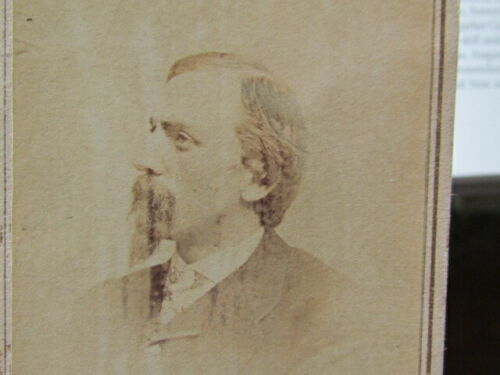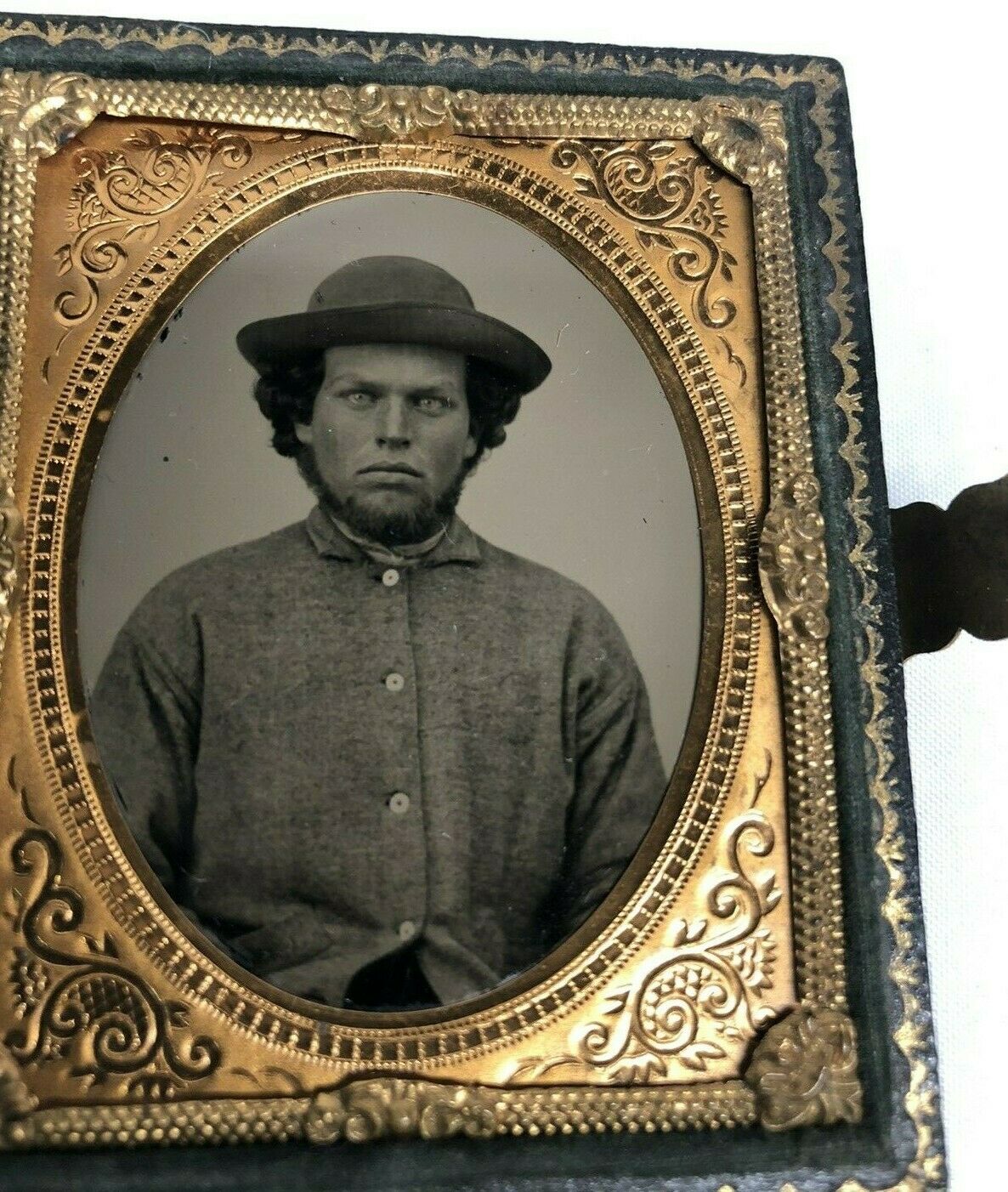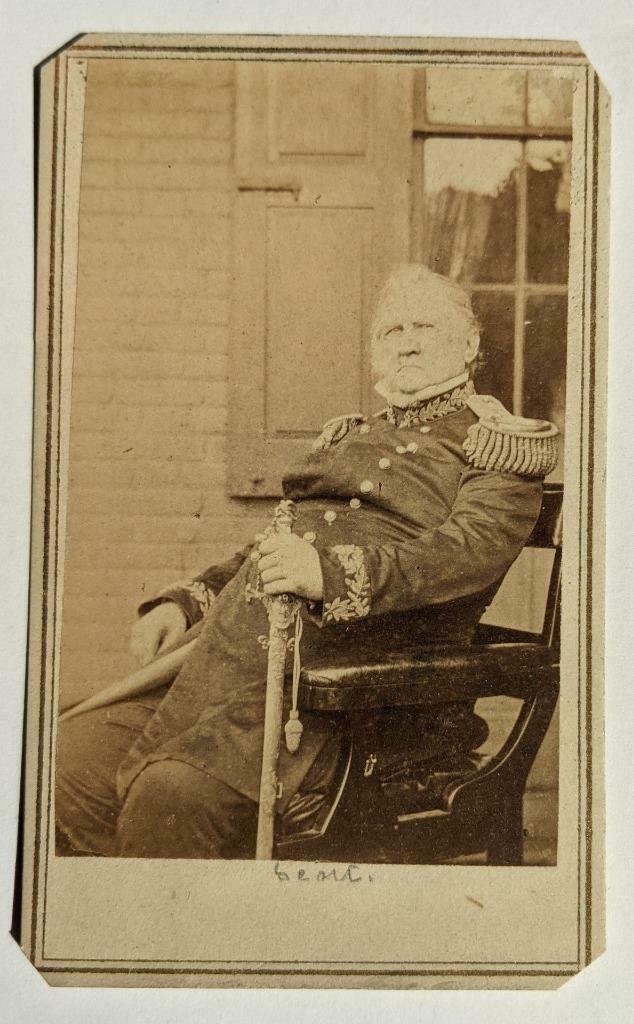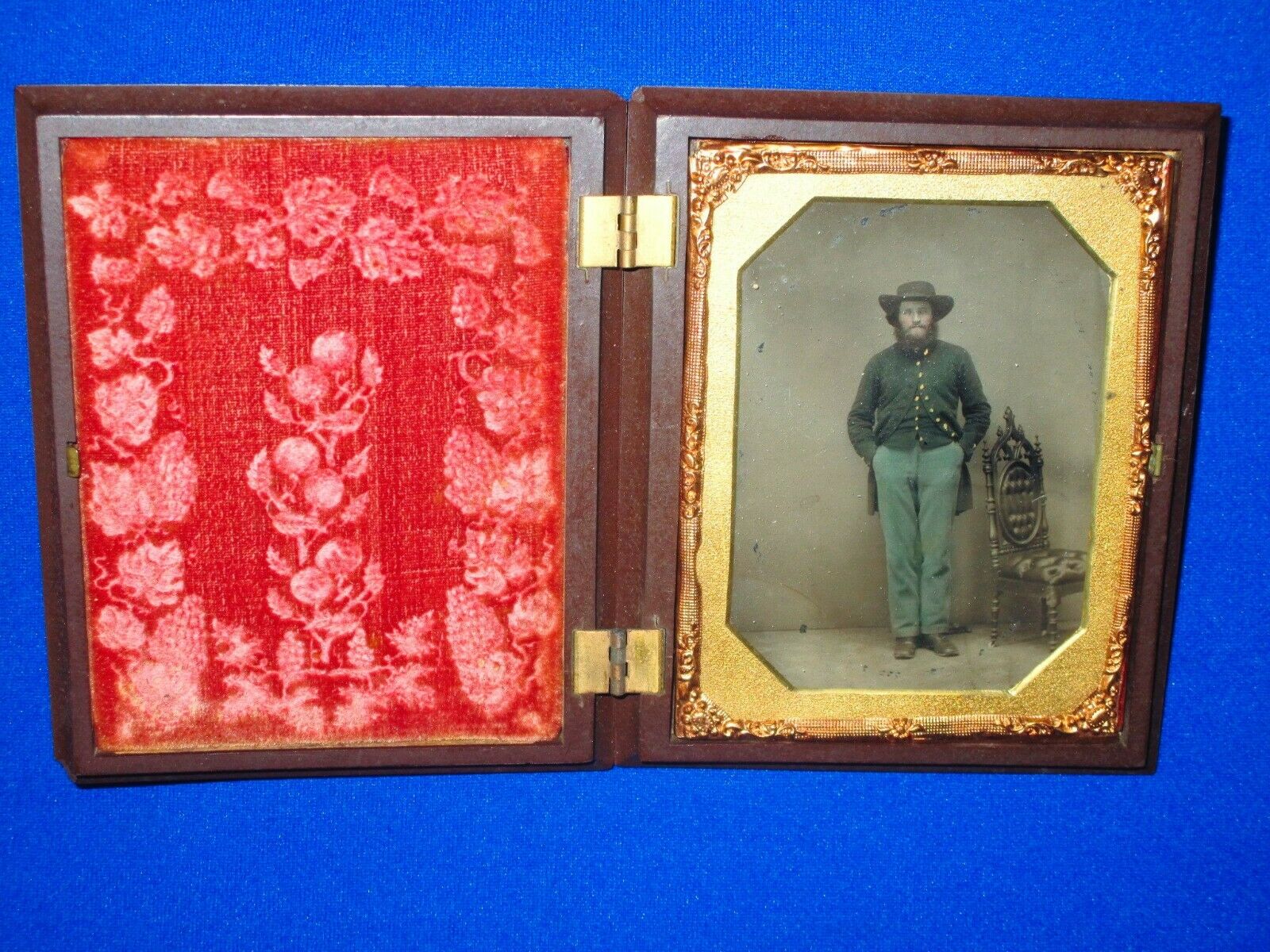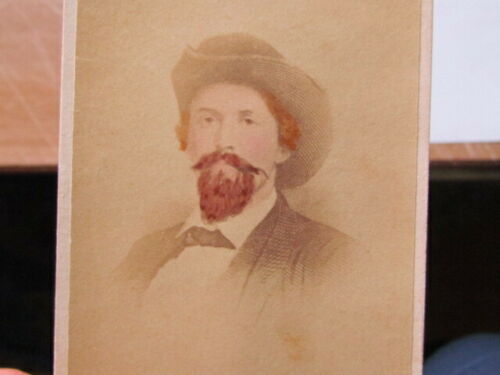-40%
🔥 RARE Important Antique Civil War Photograph, Col. Harris 1862 - Marines USMC
$ 1848
- Description
- Size Guide
Description
This is a very rare and historically important Antique Photograph Locket of early United States Marine Corps Colonel John Harris (1790 - 1864.) Harris participated with honors in the War of 1812, Indian Wars, the Second Barbary War, and the early years of the American Civil War. This locket photograph was acquired from the private collection of an elderly Militaria enthusiast. What is very rare is that this is an “unpublished” photograph of Col. Harris, which has never been seen before until now. This locket was likely kept by his wife, and passed down through the generations to his descendants. Obviously, I don’t have to tell you that early American Marine Corps historical items are VERY Rare, especially something of this magnitude. This locket is completely intact, and glass is undamaged. The locket is missing the tiny pin that holds both halves together, but this is easily replaceable by any competent jeweler. Writing in graphite on the back of the photo reads: “Col. Harris...(illegible)...1862.” The photography studio information on the back of the photo reads: “Brady’s National Photographic Portrait Galleries. Broadway & 10th St. New York & N. 1352 Pennsylvania Av. Washington D.C.” Locket is approximately 2 1/2 inches at tallest point. Please check out my other listings for more wonderful and unique artworks!About Colonel John Harris (USMC):
Colonel John Harris, sixth Commandant of the Marine Corps, was born 20 May 1790 in East Whiteland, Pennsylvania. He was commissioned a second lieutenant in the Marine Corps on 23 April 1814. Two months later he was promoted to first lieutenant and, during the summer of that year, served with the forces that opposed the advance of the British on the city of Washington during the concluding days of the War of 1812.
The following year he was placed in command of the Marine Guard of the Macedonian, which was one of the ships of the squadron of Commodore Stephen Decatur that sailed from New York in May 1815 on an expedition to punish the Barbary pirates for their numerous depredations.
Upon his return to the United States, 1stLt Harris performed duty at Erie, Pennsylvania, and at Boston, Massachusetts. From the latter station he was assigned to duty aboard the Franklin, which he joined in August 1821. He was brevetted captain 3 March 1825 for distinguished conduct on that vessel.
This was followed by tours of duty ashore at Boston, and at sea, first on the Java, then aboard the Delaware and Philadelphia. Promoted to the regular rank of captain on 13 June 1830, he was next stationed at Norfolk, Virginia. After that he joined the Delaware, from which ship he was detached in March 1936. Three months later he joined the Philadelphia detachment of Marines at Fort Monroe, Virginia, for active duty with the Army in the field in the Florida Indian Wars.
During the period of the Indian Wars in the South, he served with distinction in the Creek campaign in Alabama, and in the war with the Seminole Indians in Florida. Colonel Commandant Archibald Henderson, who commanded the Marine Regiment during the troublesome times with the indians, stated in a letter to the Secretary of the Navy that "Captain Harris while in Florida had command of Mounted Marines and did good service in that capacity."
Captain Harris was awarded brevet rank of major on 27 January 1837, "for gallantry and good conduct in the war against Florida Indians, particularly in the affair of the Hatchee Lustee." He returned to Washington in March 1837 as the bearer of a treaty which had been made by the commanding general with the Seminole chiefs. Promoted to major 6 October 1841, he served until the Mexican War at Philadelphia, Washington, and Norfolk.
In March 1884, Major Harris was ordered to Mexico to cooperate on shore with the squadron off the Isthmus of Tehauntepec. He sailed from New York with a battalion of Marines, but upon their arrival at Vera Cruz, the armistice had been concluded. He was then ordered to garrison Alvarado with his battalion.
Major Harris rejoined Headquarters in Washington, from Alvarado, in late summer of 1848. His next assignments were as Commanding Officer of the Philadelphia and New York Marine Barracks. He was promoted to lieutenant colonel, 10 December 1855, and placed in command at Brooklyn, New York, where he remained until 7 January 1859, on which date he was appointed Colonel Commandant of the Marine Corps. At the age of 68, he was the oldest officer to become Commandant of the Marine Corps. He likewise had seen more service than any officer receiving the appointment, having been a Marine for 45 years before becoming Commandant.
Colonel Harris' term as Commandant included a serious unfortunate incident shortly before the outbreak of the Civil War. At that time nearly half of his officers resigned to serve the Confederate States and he labored to reconstitute the weakened Corps. Also, during the early days of the Civil War, when contraband traffic began to flow from Maryland, Colonel Harris detailed an entire battalion of Marines to serve as Secret Service operators in the troubled area, with the result that the situation was well in hand within a brief period.
Services rendered the Union by Marines under Colonel Harris were varied and many. Few, however, have been recorded as outstanding. This may be attributed to the fact that the Marine Corps of that period was composed of relatively few men in comparison with the strength of the Army or the Navy.
Colonel Harris died on 12 May 1864 while in office as Commandant of the Marine Corps, after a brief illness. He had served his country as a Marine officer for 50 years.
